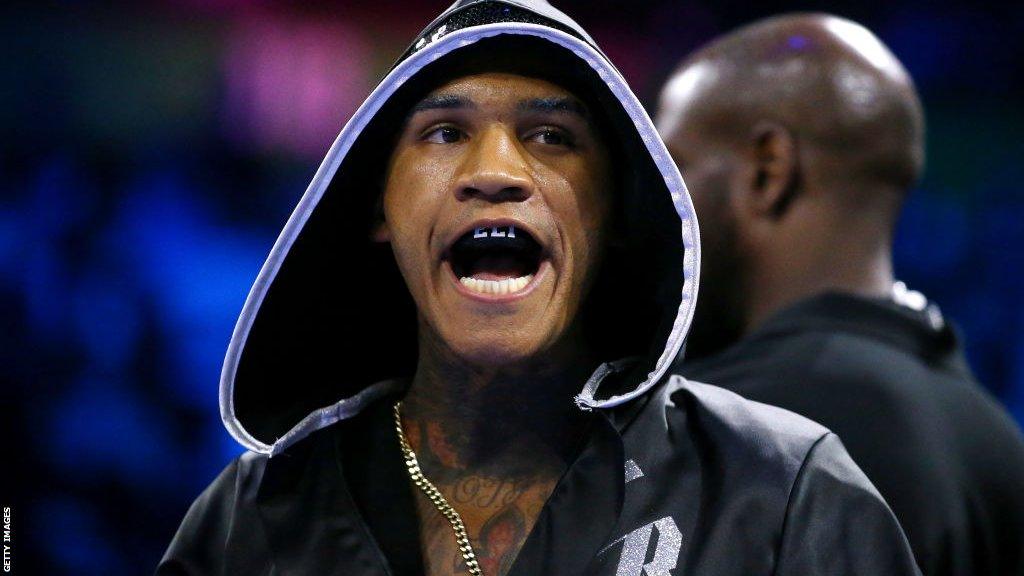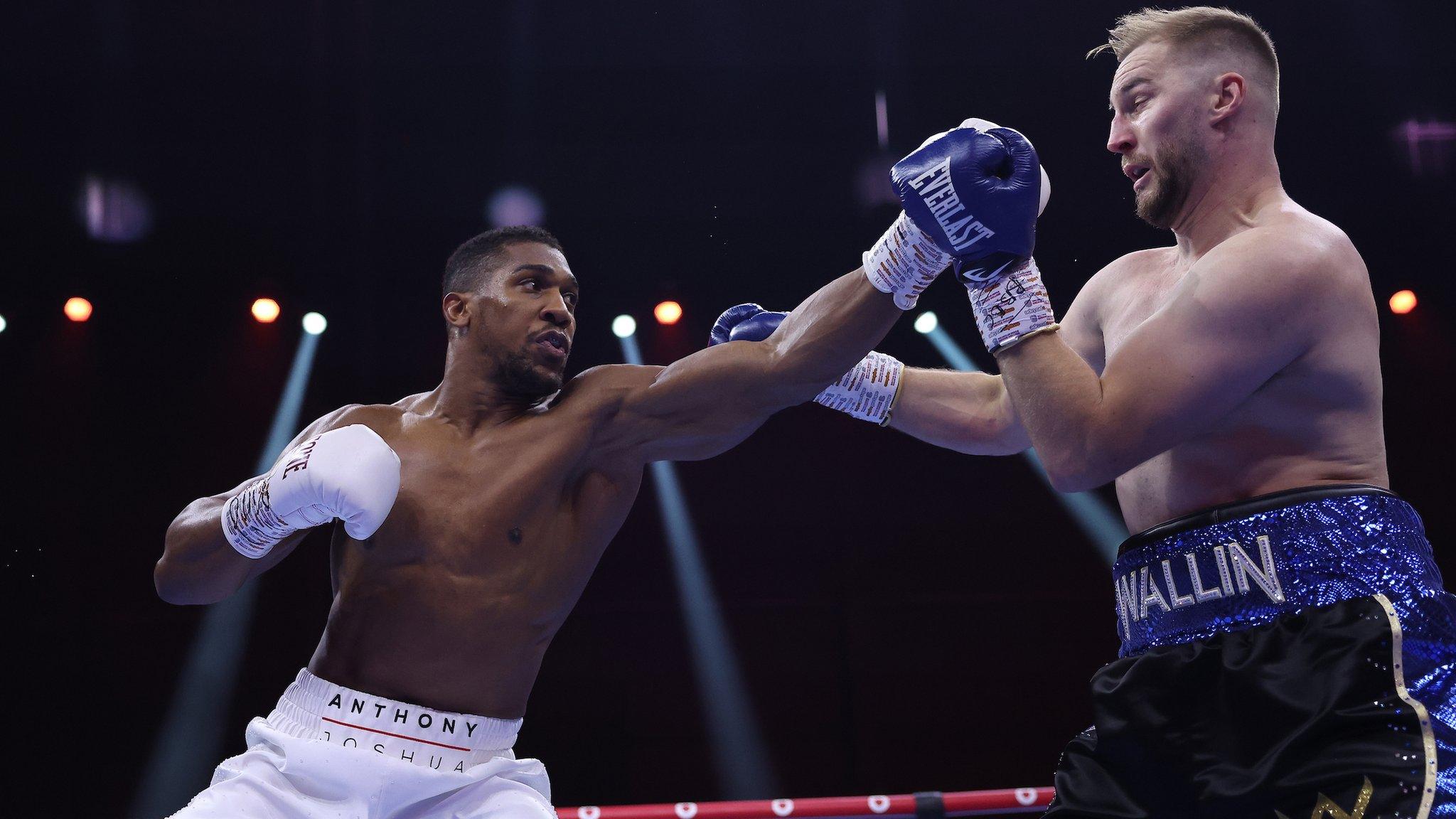Conor Benn: UK Anti-Doping appeals against decision to lift doping suspension
- Published

Conor Benn last fought in April 2022
UK Anti-Doping and the British Boxing Board of Control have appealed against a decision to lift Conor Benn's suspension from boxing.
Benn, 26, failed two voluntary tests for female fertility drug clomifene before his cancelled October bout with Chris Eubank Jr.
UK Anti-Doping issued a suspension in March; the independent National Anti-Doping Panel lifted it after a hearing.
Benn reacted by saying he was "disappointed" to learn of the appeal.
"I'm disappointed at the news of an appeal being made, having already been cleared by both the WBC and National Anti-Doping Panel to continue my career without restriction," the boxer said.
"I am innocent. Nothing has changed and I remain confident in my position."
A UK Anti-Doping (Ukad) statement read: "UK Anti-Doping can today confirm that it has filed an appeal in respect of a decision handed down by the independent National Anti-Doping Panel regarding anti-doping proceedings brought by Ukad against Mr Conor Benn.
"As confirmed previously in Ukad's statement on 28 July 2023, Mr Benn is no longer subject to a provisional suspension."
The tests were conducted by the Voluntary Anti-Doping Association (Vada), which until this case had operated independent to the British Boxing Board of Control (BBBofC).
The board employs Ukad to do its testing, but elite fighters such as Anthony Joshua hire Vada to add an extra layer of testing.
Benn and Eubank were scheduled to meet on 8 October at a catchweight of 157lb, 30 years after their fathers Nigel Benn and Chris Eubank Sr fought.
Having failed the two voluntary drug tests, Benn gave up his licence with the BBBofC in the weeks after his planned contest with Eubank was cancelled.
The board refused to let him compete in the UK until he co-operated with Ukad, although Benn did comply with a World Boxing Council (WBC) investigation.
The WBC is a sanctioning body and not an anti-doping watchdog.
After a short investigation into one of the failed drug tests, the WBC said it did not believe Benn was guilty of "intentional doping" and added a "highly elevated consumption of eggs" could have caused the positive test in July.
Benn provided a 270-page document to the WBC outlining his defence, but insisted eggs were never offered as an excuse. He also said he does not accept the banned substance was ever in his system.
Related topics
- Published14 January 2024
